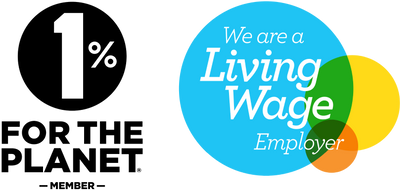The Perfect Home Brew Set Up

Most of us are expecting to spend a little more time at home over the next few weeks. With that in mind, we thought we'd share our thoughts on what the perfect home brew set up is and how to brew really exciting coffee.
The following list is in order of what we think is essential.
It goes without saying really. You can't start with bad ingredients. So, what is really good coffee? We think it starts by being well-traded with good traceability, down to the individuals not just the area. If it has that then you can start to look at the financial chain and the worth for the farmers. Once you have these things you can look at the flavour. That, of course, is what most coffee lovers are interested in. We group our coffees in different ranges, House, Trust, and Explore to help guide you through the flavour profiles. We think we roast some of the best coffee in the country and we're really proud of that, whether you're looking for an intensely sweet and chocolatey morning coffee or exotic and fresh, we've got it covered.
#3 Grinder
If you really like your coffee and you don't have a grinder, you're nuts. Honestly. Freshness is key. You may be buying ground coffee and thinking it's ok after a couple of days and you'd be right, it's ok. But, grind fresh before you brew and you'll find your coffee starts singing, shining, buzzing in your cup. Bright and alive and worthy of all the hands it's gone through to make it through your door.
We sell the Wilfa Svart Coffee Grinder because they're well priced and really good at grinder from coarse through to fine for espresso. They're quiet, stylish and don't make a mess. You can't really ask for more.
#3 Scales
Regardless of how you're brewing (filter, espresso, aeropress) getting an accurate pair of scales is pretty much the most important thing you can do (after buying good coffee and a grinder of course). It's not rocket science and you don't have to get your lab coat out, but if you want to do 1 thing that will guaranteed improve your coffee GET A PAIR A SCALES and weigh you dose and yield.
#4 Your Brewer
There are lots of options here and it definitely comes down to personal preference as much as anything else. Here are our thoughts...
Drip filters (V60, Chemex, Kalita, December)
Hand-poured drip filters brew clean and crisp coffee, often praised for extenuating acidity. The paper itself will hold back sediment so you'll get less body than other brewers, which may or may not be to your liking. They're fun to use and require a bit of skill and extraction understanding, so again this is nice if you like that sort of thing.

#4.1 Pouring Kettle
If you're using any type of drip brewer, it's absolutely essential that you have a pouring kettle. Whether that's completely manual (filled via a normal kettle) or it has the ability to boil water itself, doesn't really matter. What's important is that you have control over flow and direction of your water. Check out the Felicita Temperature controlled kettle if you want the full package or the Bouno Kettle for the orignal classic.
#4...continued
Aeropress
We love a good Aeropress. It was invented as a home espresso maker but in our humble opinion, it's much better as a very controlled version of a filter brewer. Because you have control over time by choosing when to plunge (unlike drip filters) you can really play around with grind size and extraction.
They're hardy and easy to use and easy clean so, whether you're brewing at home or heading up a mountain, they're the perfect companion.
Cafetiere
Call me old school, but a good cafetiere is a wonderful thing. You can guarantee good even extraction (as long as your grind is good) and your ability to plunge means brewing is easy. You need to take care to clean your metal filter though as these are usually pretty rank, plus you'll likely be dealing with smudge and sediment coming through, but again that might be a positive depending what you're into.
Stovetop Percolators
Seemingly the most popular brew nowadays, although I've rarely had a nice cup of coffee from a percolator. They brew very quickly with a fine grind being necessary so they're closer to espresso than a filter coffee. The ratio of coffee to water is also stronger than anything else above so you're likely to have a thick, heavy cup of coffee. If you like milk or milk alternatives then stovetops are a good option.
Espresso Machines
All we can say is this.... commercial machines are a very different beast. Domestic machines tend to struggle through a lack of pressure and temperature variation. The small baskets don't encourage good extraction and the steam pressure is rarely good enough to steam well. Unless you're prepared to spend over £500 - stick to one of the brew methods above.
#5 Water
Honestly, good quality water will make the world of difference, especially if you're already brewing carefully, using the type of equipment above. We're lucky to call Cornwall our home, which means we have soft water that is good for brewing coffee. If you live in a hard water area, either get yourself a filter or buy some bottled water with a high mineral content. Magnesium is the king flavour carrier.







